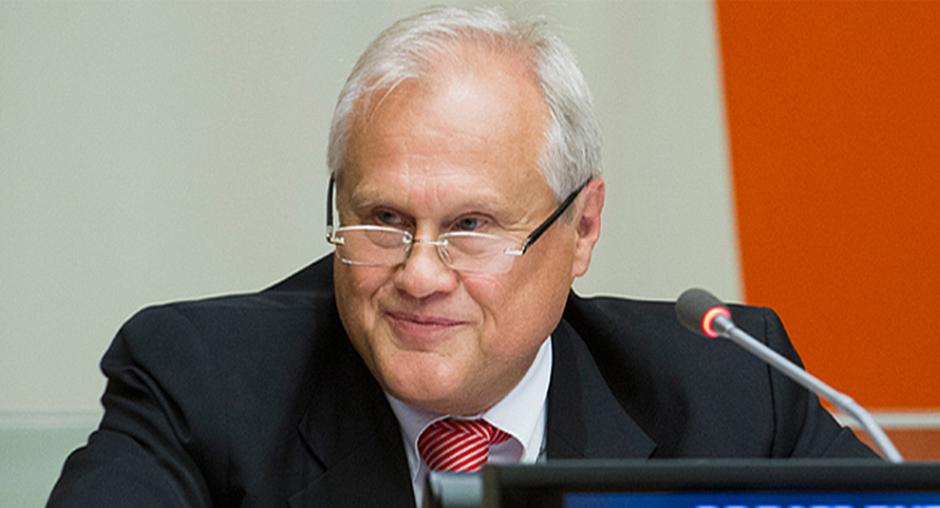Press Statement of Special Representative of the OSCE Chairperson-in-Office Sajdik after Meeting of the Trilateral Contact Group in Minsk on 26 October 2016

MINSK, 26 October 2016 - Special Representative of the OSCE Chairperson-in-Office in Ukraine and in the Trilateral Contact Group (TCG) Martin Sajdik made the following press statement after the meeting of the TCG and its four Working Groups in Minsk on 26 October 2016:
“Our meetings usually take place every two weeks. As an exception, today’s meeting was held after a three-week break. However, other important events connected to the peaceful settlement of the situation in eastern Ukraine took place in the meantime. First of all, I am talking about the summit in the Normandy format held in Berlin on 19 October 2016. It was preceded by a meeting of the political advisors of Heads of States and Governments in the same format, held in Minsk on 14 October.
The Trilateral Contact Group also discussed a number of questions in video-conferences. They focused on security issues, in particular disengagement of forces and hardware. In video-conferences on 11 and 18 October representatives from certain areas of Luhansk and Donetsk regions, the Head of the OSCE Special Monitoring Mission in Ukraine (SMM) and Co-ordinator of the Working Group on Security Issues Ambassador Ertuğrul Apakan, as well as representatives of the Joint Centre for Control and Co-ordination (JCCC) also participated.
As for today’s negotiations, in the field of security the discussion mainly focused on the implementation of the Framework Decision on Disengagement of Forces and Hardware of 21 September 2016, namely in the first three areas – Petrivske, Zolote and Stanytsia Luhanska.
We have noted that disengagement in Zolote and Petrivske has taken place and also discussed certain progress in demining. But a number of unresolved problems remain, in particular concerning access for the OSCE SMM to those two areas. Disengagement in the vicinity of Stanytsia Luhanska was discussed, as well as potential new areas for disengagement of forces and hardware.
The meeting today once again demonstrated that the TCG firmly and fundamentally supports the idea of disengagement along the entire line of contact. Disengagement is seen as a key factor in strengthening mutual trust.
As I have repeatedly pointed out on previous occasions, full adherence to the ceasefire would certainly contribute greatly to the prompt implementation of the Framework Decision.
Among the political issues, the discussion centered on amnesty issues, the so-called “Steinmeier formula” and modalities of local elections.
Among the economic aspects, issues of water and electricity supply were discussed, as well as the restoration of railway tracks and electricity grids. As I already pointed out three weeks ago, the key issue requiring an urgent solution is payments for water supply and electricity, including the question of debts in certain areas of Luhansk region.
Finally, I would like to point out that the Co-ordinator of the Working Group on Humanitarian Issues Ambassador Toni Frisch is currently in certain areas of Donetsk and Luhansk regions in order to visit detainees. In this regard, I would like to remind that Ambassador Frisch has already conducted similar visits on the territory controlled by the Ukrainian Government.”
